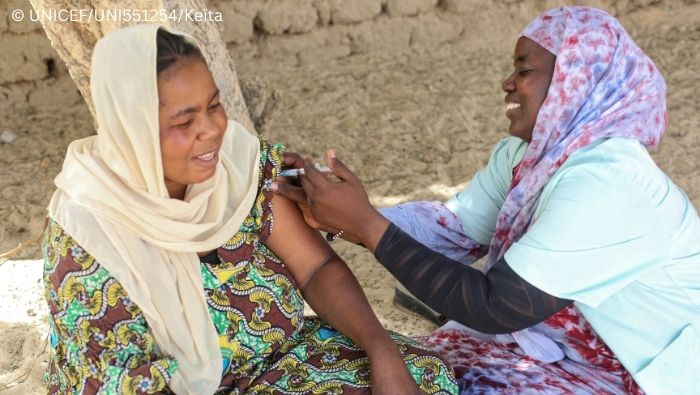Four clubs received grants for outstanding youth leadership development projects.
By Erin Chandler
This August, the Kiwanis Children’s Fund awarded club grants to a remarkable 32 clubs serving communities around the world. Out of those projects, some of the most distinctive focused on the Kiwanis cause of youth leadership development by fostering young people’s creative independence. The following four projects exemplify different ways Kiwanis projects can guide the next generation on the path to becoming future leaders.
CleanUP Community
Kiwanis Club of Craiova, Romania
The Kiwanis Club of Craiova is addressing Romania’s struggles with waste management, especially recycling, by getting the next generation involved. A Kiwanis Children’s Fund grant will help purchase materials for seminars and workshops to educate kids from age six through 18 on environmental issues. The grant also will go toward supplies for conservation activities in which local children can participate with other members of their community, such as recycling drives, cleanups and community gardens. The ultimate goal of the CleanUP Community project, though, is to give young people the means to become advocates and leaders, developing their own plans and strategies to improve waste management in their community. Within a year, the club hopes its community youth teams will develop at least one implementable plan and be ready to promote sustainable development goals.
Creativ in die Lehre mit Kunst (Creative Teaching with Art)
Kiwanis Club of Lavanttal, Austria
A Kiwanis Children’s Fund grant will help the Kiwanis Club of Lavanttal purchase paints, brushes, canvas, ceramics and more to turn its community’s young people into artists. The Kiwanians are collaborating with a vocational school and a local artist to provide art classes for teens, including those with disabilities. Culminating in a public art exhibit to show off the students’ creations, these classes will allow the students to explore their artistic sides — with club members helping the students place their sculptures and other artworks in parks, gardens and other public places.
Let’s Play! Leadership Training Program
Kiwanis Club of Melbourne, Florida, U.S.
Members of the Kiwanis Club of Melbourne noticed a lack of local accessible and affordable child development programs that focused on mental health for kids and families alike — and they decided to change that. Through the “Let’s Play!” program, the club will provide free programs at local libraries for kids ages 18 and younger and their caregivers. The programs will promote creativity, innovation and collaboration through activities like open-ended play, art projects and storytelling sessions. After working together to complete their projects, participants will reflect on their experiences through dialogue, drawing and writing. A grant from the Kiwanis Children’s Fund will help the Melbourne Kiwanians produce “how-to” videos, presentations and manuals to help other Kiwanis clubs and communities replicate “Let’s Play!” The club hopes to guide young people and families, regardless of income, to value play as a way of reducing anxiety and increasing understanding of their own and-w others’ creative abilities.
Lifewise Program
Kiwanis Club of Wapakoneta, Ohio, U.S.
The Kiwanis Club of Wapakoneta’s Lifewise Program is geared toward at-risk adolescents between the ages of 16 and 18 who may be aging out of the foster system, not attending traditional schools or involved in the judicial system. Through a weekly series of six three-hour courses, club members hope to help these vulnerable young people graduate high school and prepare for the next steps in their lives. The courses will focus on basic cooking and cleaning skills, identifying risky situations, finding a job and achieving financial independence, basic auto knowledge, and dressing for success — with the sixth course serving as a culmination of the program. A Kiwanis Children’s Fund grant will go toward meals for instructors and participants at each course, as well as supplies the students can use during the courses and then take home with them. The entire Lifewise Program wraps up with a graduation ceremony to celebrate the participants’ achievements.
More health and education projects
Other projects that received club grants in August include:
- A weekend food program from the Kiwanis Club of Hilliard, Ohio, U.S.
- Mental health care kits from the Kiwanis Club of Park Ridge, Illinois, U.S.
- A program to honor most-improved third-grade students from the Kiwanis Club of Opelousas, Louisiana, U.S.
- After-school tutoring from the Kiwanis Club of Shan Hsin, Taiwan.
- An inclusive playground from the Kiwanis Club of Lapeer, Michigan, U.S., and a musical instrument playground from the Kiwanis Club of Sycamore, Illinois, U.S.
- A recreation hour for children in the hospital from the Kiwanis Club of Granada-Meta, Colombia.
- A high school herbal garden from the Kiwanis Club of Greater Portmore, St. Catherine, Jamaica.
- Renovation and repairs at Shady Grove Basic School from the Kiwanis Club of 23 Central Surrey Online, Jamaica.
- Children’s swimming lessons from the Kiwanis Club of Rockaways, New York, U.S.
- Miracle League of Montgomery County inclusive baseball training and recruitment from the Kiwanis Club of Bethesda, Maryland, U.S.
- 2024 Signature Project Contest Group II Bronze-winning project “Kiwanis Cares for Kids,” providing supplies and experiences to local school children from the Kiwanis Club of Gig Harbor, Washington, U.S.
- Clothing, school and essential supply projects from the Kiwanis Clubs of Brigham City, Utah, U.S.; Fostoria, Ohio, U.S.; Hagerstown, Maryland, U.S.; Lenape Valley, New Jersey, U.S.; and North Shore, Long Island, New York, U.S.
- Holiday events from the Kiwanis Clubs of Bald Eagle and Nittany Valleys, Pennsylvania, U.S.; Petersburg, Virginia, U.S.; Providenciales, Florida, U.S.; and Sierra Vista-San Pedro, Arizona, U.S.
- Literacy projects from the Kiwanis Clubs of East Lansing, Michigan, U.S.; Hickory, North Carolina, U.S.; Lauderdale Lakes, Florida, U.S.; Richmond, Virginia, U.S.; The Rising Sun, Bahamas; and Siesta Key, Florida, U.S.
How you can help
The Kiwanis Children’s Fund makes grants that improve the lives of children around the world by identifying projects that create a continuum of impact in a child’s life — one that spans their entire childhood and sets them up for a bright future. Through The Possibility Project, the Children’s Fund ensures that its grantmaking has the greatest possible impact, supporting projects that target the Kiwanis causes — health and nutrition, education and literacy, and youth leadership development — whether through a Kiwanis club’s local service project or a club’s partner.
Learn how your club can apply for a grant to help kids in your community. If you are interested in extending your and your club’s impact beyond your community, make a gift in support of The Possibilty Project.



